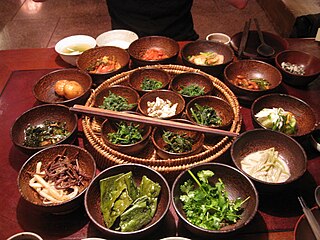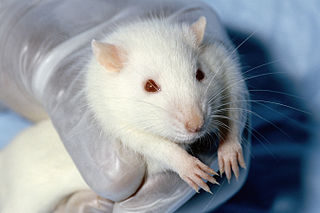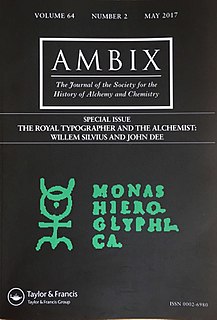
Cuisine of Chinese Muslims is the cuisine of the Hui and other Muslims living in China such as Dongxiang, Salar, Uyghurs, and Bonan as well as Dungans of Central Asia.

The 1989 Tiananmen Square protests, commonly known in mainland China as the June Fourth Incident, were student-led demonstrations in Beijing in 1989. More broadly, it refers to the popular national movement inspired by the Beijing protests during that period, sometimes called the '89 Democracy Movement. The protests were forcibly suppressed after Chinese Premier Li Peng declared martial law. In what became known in the West as the Tiananmen Square Massacre, troops with assault rifles and tanks fired at the demonstrators trying to block the military's advance towards Tiananmen Square. The number of civilian deaths was internally estimated by the Chinese government to be near or above 10,000.

The Pig (豬) is the twelfth of the 12-year cycle of animals which appear in the Chinese zodiac related to the Chinese calendar. In the continuous sexagenary cycle of sixty years, every twelfth year corresponds to hai, 亥 ; this re-recurring twelfth year is commonly called the Year of the Pig (豬年). There are five types of Pigs, named after the Chinese elements. In order, they are: Metal, Water, Wood, Fire, and Earth. These correspond to the Heavenly Stems. Thus, there are five pig years in every sexegenary cycle. For example, in the year 2019, the Earthly Branch is the twelfth, hài, and the Heavenly Stem is the sixth, jǐ 己. The Chinese New Year in 2019 is February fifth: this corresponds with the beginning of both the sexegenary year of jǐ hài and also the zodiac year of the Earth Pig.

The Tiger (寅) is the third of the 12-year cycle of animals which appear in the Chinese zodiac related to the Chinese calendar. The Year of the Tiger is associated with the Earthly Branch symbol 寅.

The Dog (狗) is eleventh of the 12-year cycle of animals which appear in the Chinese zodiac related to the Chinese calendar. The Year of the Dog is associated with the Earthly Branch symbol 戌. The character 狗, also refers to the actual animal while 戌, also refers to the zodiac animal.

The Snake (蛇) is the sixth of the 12-year cycle of animals which appear in the Chinese zodiac related to the Chinese calendar. The Year of the Snake is associated with the Earthly Branch symbol 巳.

The Goat is the eighth of the 12-year cycle of animals which appear in the Chinese zodiac related to the Chinese calendar. The sign is often referred to as the Ram or Sheep sign, since the Chinese word yáng is more accurately translated as Caprinae, a taxonomic subfamily that includes both goats and sheep. The Year of the Goat is associated with the 8th Earthly Branch symbol, 未 (wèi).

The Rat (子) is the first of the 12-year cycle of animals which appear in the Chinese zodiac related to the Chinese calendar. The Year of the Rat is associated with the Earthly Branch symbol 子.

Hung Ga (洪家), Hung Kuen (洪拳), or Hung Ga Kuen (洪家拳) is a southern Chinese martial art belonging to the southern shaolin styles. It is associated with the Cantonese folk hero Wong Fei Hung, a Hung Ga master.
A hide or skin is an animal skin treated for human use.
The word "hide" is related to the German word "haut" which means skin. The industry defines hides as "skins" of large animals e.g. cow, buffalo; the skins refer to "skins" of smaller animals: goat, sheep, deer, pig, fish, alligator, snake, etc.
Common commercial hides include leather from cattle and other livestock animals, buckskin, alligator skin and snake skin. All are used for shoes, clothes, leather bags, belts and other fashion accessories. Leather is also used in cars, upholstery, interior decorating, horse tack and harnesses. Skins are sometimes still gathered from hunting and processed at a domestic or artisanal level but most leather making is now industrialized and large-scale. Various tannins are used for this purpose.

Karen Mok is one of the leading Chinese actresses and pop singers. She has won the Golden Melody Award three times, has released over 20 solo CDs, acted in over 40 movies and has over 14 million followers on Chinese microblogging site Weibo.

Buddhist vegetarianism is the belief that following a vegetarian diet is implied in the Buddha's teaching. In Buddhism, however, the views on vegetarianism vary between different schools of thought. According to Theravada, the Buddha allowed his monks to eat pork, chicken and fish if the monk was aware that the animal was not killed on their behalf. The Mahayana schools generally recommend a vegetarian diet; according to some sutras the Buddha himself insisted that his followers should not eat the flesh of any sentient being. Monks of the Mahayana traditions that follow the Brahma Net Sutra are forbidden by their vows from eating flesh of any kind.

Southwest University is a comprehensive university in Chongqing, China. It is a Chinese Ministry of Education Double First Class Discipline University, with Double First Class status in certain disciplines.

The position and treatment of animals in Buddhism is important for the light it sheds on Buddhists' perception of their own relation to the natural world, on Buddhist humanitarian concerns in general, and on the relationship between Buddhist theory and Buddhist practice.

Cat meat is meat prepared from domestic cats for human consumption. Some countries eat cat meat regularly, whereas others have only consumed cat meat in desperation during wartime or poverty.
Chinese Animal Protection Network (CAPN) is a non-profit animal protection organization, and the first network for animal protection in China, founded by people of China. CAPN is known for its pioneering role in the animal rights movement in China, leading the growing movement against eating cats and dogs, and providing a free encyclopedia on animal welfare information.

Northwest A&F University, is a national key university located in Yangling Agricultural Hi-tech Industries Demonstration Zone, Shaanxi Province, P.R.China. The university has an old and abandoned name called Northwest Sci-tech University of Agriculture and Forestry, NWSUAF for short, which is still kept in the domain name of the university's official website. A&F is included in the Double First Class University Plan by China's Ministry of Education.

The Chinese zodiac is a classification scheme that assigns an animal and its reputed attributes to each year in a repeating 12-year cycle. The 12-year cycle is an approximation to the 11.85-year orbital period of Jupiter, the largest planet of the Solar System. It and its variations remain popular in many Asian countries including China, Hong Kong, Taiwan, Japan, South Korea, Vietnam, Mongolia, Cambodia, Laos, Nepal, Bhutan, and Thailand.

Xing Yi Quan is classified as one of the Wudang styles of Chinese martial arts. The name of the art translates approximately to "Form-Intention Fist", or "Shape-Will Fist".

The Rooster is the tenth of the 12-year cycle of animals which appear in the Chinese zodiac related to the Chinese calendar. The Year of the Rooster is represented by the Earthly Branch symbol 酉. The name is translated into English as Chicken.





















